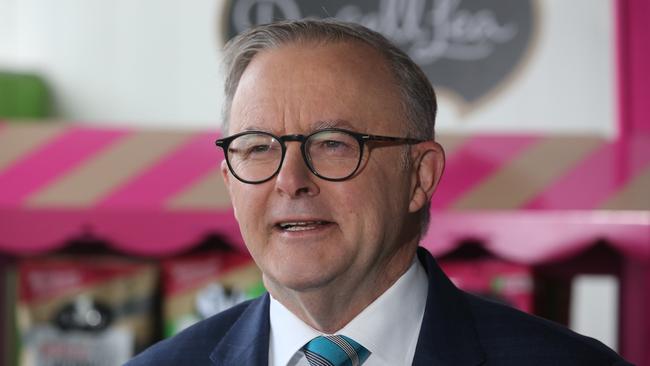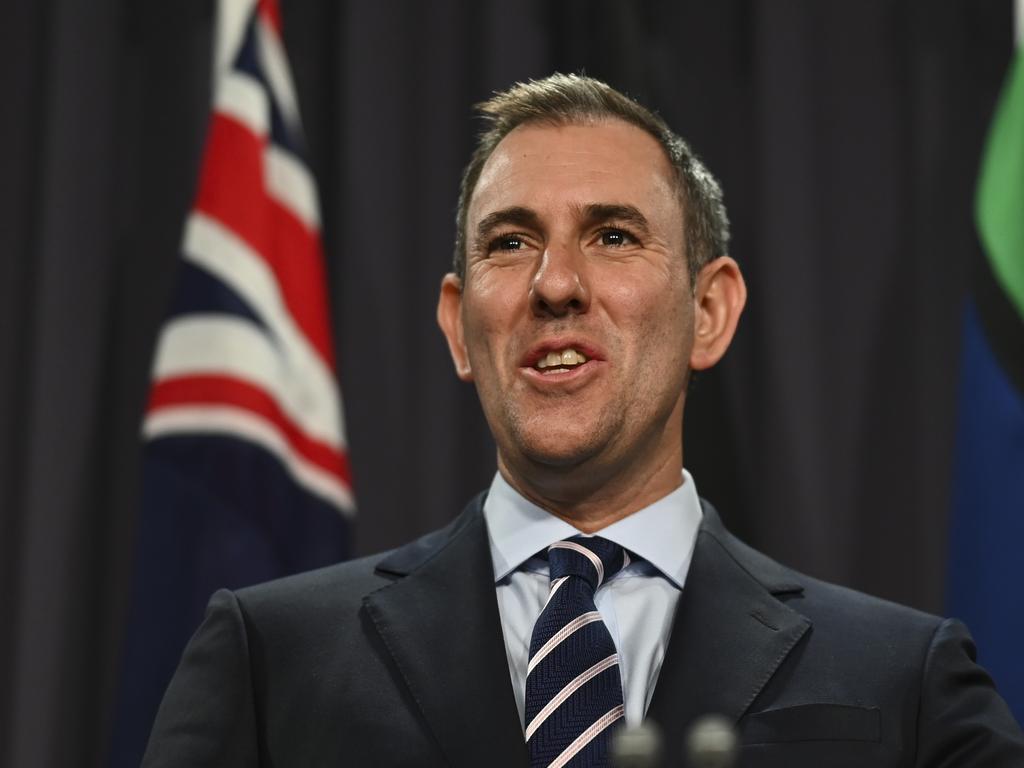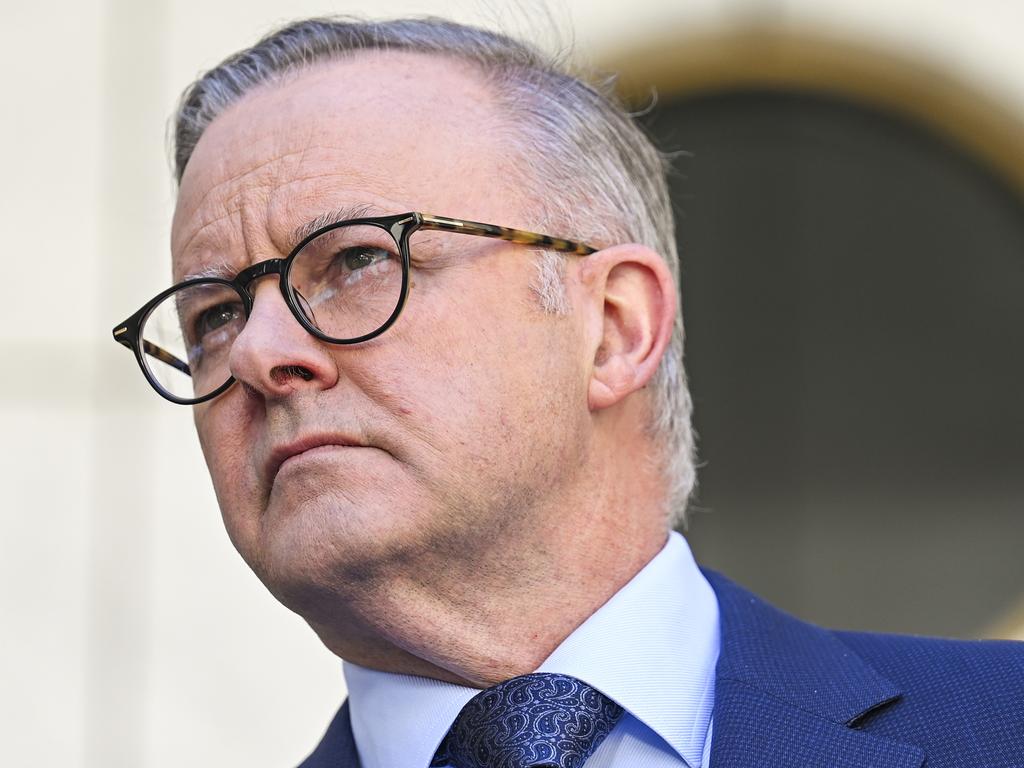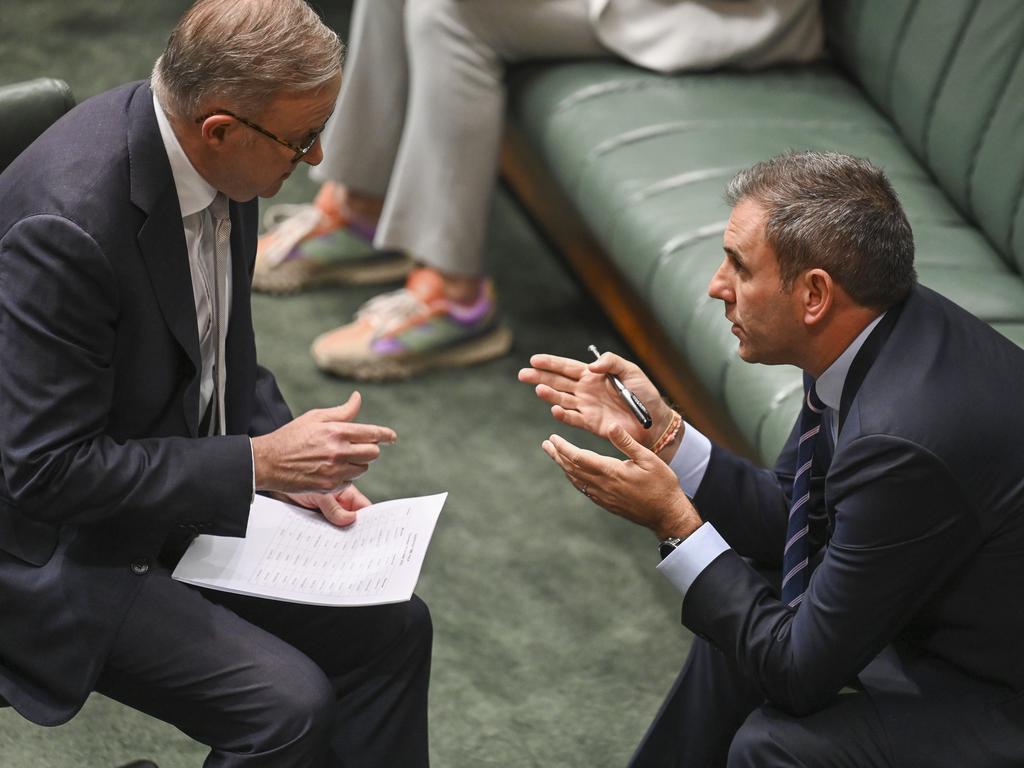
His resolve on this will be tested as electoral anger builds.
Yet the Prime Minister has at least signalled that having delivered on Labor’s election commitments, the tap has been turned off for the meantime.
“Spraying money around in search of a headline, as our predecessors so often did, would make the problem of inflation worse not better,” Albanese says in his speech to The Australian’s economic and social outlook conference.
Albanese’s address is the first significant commentary on cost of living since the failure of the voice referendum. He talks of the long term over short-term fixes and putting Australia’s economy on a sustainable path.
He sees the government’s mission as one that shields the country from the worst of it without resorting to protectionism. The policy prescriptions for the future response are yet to come.
So far, it is a narrative built around the existing Labor agenda. Conflicting with this is the government’s industrial relations reform, which business argues will have an inflationary impact. At the same time, Jim Chalmers also warns of a failure of the energy transition without more government intervention.
The Treasurer says this, and a new industry policy approach are now a major focus of reform around the cabinet table.
But it is the productivity challenge and the decline in living standards that must remain central themes to Chalmers’ thinking.
Albanese has come under increasingly acute pressure to address the broader economic problem, both the short-term pain it is delivering through inflation as well as the longer-term agenda, having been accused of being distracted by the politics of the voice.
It’s a problem that is getting worse rather than better, with the likelihood that the central bank will begin a new cycle of rate rises next week.
The bureau of statistics on Wednesday proved the point that mortgage holders were copping the biggest hit in living standards in decades. They are about to get hit again.
At a time when households are struggling, the temptation for the government to spend its way out of the political problem would be significant. If only it were that easy. Albanese is right to say that the best thing the federal government can do is not add to the problem by leaning on the budget.
The test for Albanese is whether he can match the rhetoric with action. Nothing would be more economically irresponsible than to start throwing money around, as he himself has acknowledged. If that discipline is maintained, none of what the government can actually do will deliver short term electoral benefit.
The restraints that Chalmers needs to put on the government make the retail politics of the economy even more tricky for Albanese.








Anthony Albanese has rightly identified spending restraint as a key feature of what should be the government’s response to the acute cost-of-living pressures now facing many Australians.